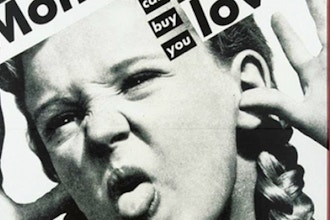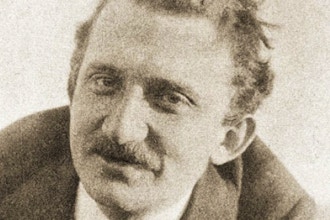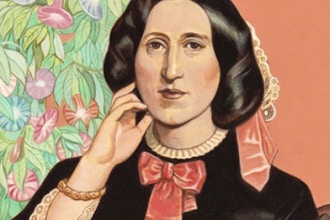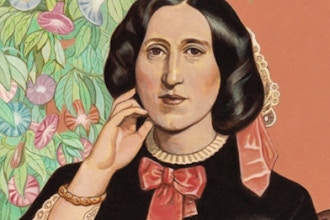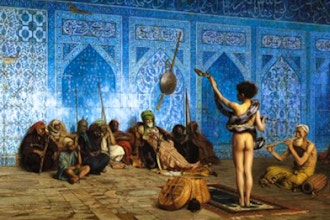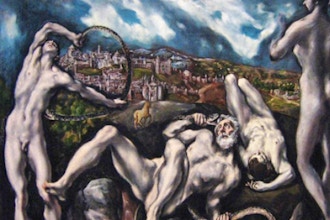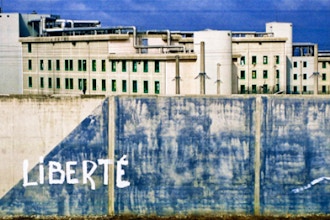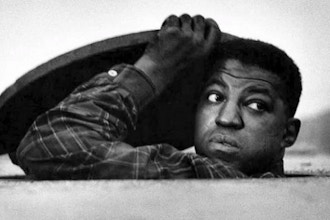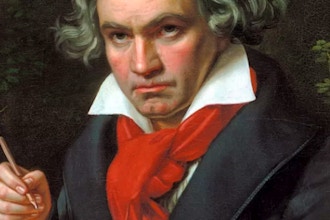Brooklyn Institute for Social Research
Upcoming Classes in NYC
The Brooklyn Institute for Social Research, established in 2011, offers liberal arts education and research opportunities to local communities while supporting young scholars. With a mission to engage various intellectual traditions, the institute aims to provide accessible education and foster active, engaged citizens.

3 classes have spots left
Feminism, Politics, and Imagination
Brooklyn Institute for Social Research
This course approaches the politics of marginal subjects through the work of women thinkers, writers, characters, actors, and artists. These figures confront the logics of colonialism, capitalism, racism, fascism, and patriarchy by thwarting the voices, loves, fates, destinies, and narratives conferred to them within these systems, as well as within those discourses that seek to liberate them. Notions of speech, disorder, pathology, trauma, romance,...
Walter Benjamin: the Collector
Brooklyn Institute for Social Research
Walter Benjamin—as he became better acquainted with Marxism and began to self-identity as a convinced if somewhat idiosyncratic Communist—became one of the Western world’s preeminent philosophers of stuff. From toys to decorative design to clothes, materials, buildings, popular art and knick-knacks, Benjamin was persuaded that “detritus” was in fact the key to understanding history and the always pregnant, revolutionary possibilities...
On Religious Violence
Brooklyn Institute for Social Research
This course will offer students a framework for confronting such questions. We will begin by examining the construction of “religious violence” as a unique concept against the background of classic liberal political thought. Featuring readings from prominent theorists like John Locke and John Stuart Mill alongside contemporary reflections by thinkers such as Talal Asad, Charles Taylor, Jürgen Habarmas, and William Cavanaugh, we will ask questions...

CourseHorse Gift Card
Thousands of classes & experiences. No expiration. Gift an experience this holiday season and make it a memorable one. Lock in a price with the Inflation Buster Gift Card Price Adjuster™
Marxism and Culture
Brooklyn Institute for Social Research
Marxism and Culture: Georg Lukacs, Revolution, and Consciousness “Materialist dialectic is a revolutionary dialectic.” So wrote the Hungarian philosopher Georg Lukács in March 1919 as a participant in the proletarian revolutions sweeping Europe in the wake of World War I. In a series of essays written in response to the Bolshevik Revolution, Lukács re-conceptualized orthodox Marxism in Hegelian terms, at once restoring dialectical materialism...
George Eliot’s Middlemarch: Awakening Consciousness
Brooklyn Institute for Social Research
Virginia Woolf called George Eliot’s Middlemarch “one of the few English novels written for grown-up people.” Henry James described it as “at once one of the strongest and one of the weakest of English novels… a treasure-house of details [and] an indifferent whole.” In our own time, Middlemarch is widely considered the finest Victorian novel, and is the subject of popular books as well as endless scholarly conversation. Who was George...
Middlemarch
Brooklyn Institute for Social Research
Virginia Woolf called George Eliot’s Middlemarch “one of the few English novels written for grown-up people.” Henry James described it as “at once one of the strongest and one of the weakest of English novels… a treasure-house of details [and] an indifferent whole.” In our own time, Middlemarch is widely considered the finest Victorian novel, and is the subject of popular books as well as endless scholarly conversation. Who was George...
Darwin: Genes, Generation, Genealogy
Brooklyn Institute for Social Research
Charles Darwin’s On The Origin of Species produced a radical paradigm shift in thinking about the living world. After Darwin, the origins of life were no longer miraculous or murky: life could build itself, meaning humanity no longer stood apart from the natural world or required a supernatural character. This work remains, for some, controversial, but it is a key tenet of all contemporary biological inquiry. Over the course...
Edward Said: Culture and Empire
Brooklyn Institute for Social Research
Few contemporary intellectuals have generated enough interest in their work to achieve simultaneous fame and infamy, yet this distinction undoubtedly applies to Edward Said (1935-2003). In the aftermath of his monumental Orientalism (1978) and his outspoken advocacy on behalf of the Palestinian people, Said became a lightning rod within both academic and policy debates about multiculturalism, Euro-American exceptionalism, and the nature of American...
Carl Schmitt: Political Theology
Brooklyn Institute for Social Research
In recent decades, there has been a surprising resurgence of interest in the work of the Nazi jurist and political theorist Carl Schmitt. From neoconservative doctrines of the “unitary executive” to many strands of non-Marxist leftist thought, Schmitt’s ideas have found new purchase in our contemporary political landscape. Schmitt was a towering figure in the Weimar period. Next to Martin Heidegger, he stands as perhaps the most important and...
Discipline, Punish, Revolt
Brooklyn Institute for Social Research
What would it mean to abolish the penal system as we have come to know it? To address this question, this class will focus on Michel Foucault’s groundbreaking theoretical and activist work on discipline, punishment, and prisons, and how this work might speak to contemporary struggles against mass incarceration and the rise of what has come to be called the prison abolition movement. We will begin with selections from Foucault’s classic book Discipline...
Critical Design: Interface and Imagination
Brooklyn Institute for Social Research
From user experience research to sustainable development, professional labor and productivity is increasingly framed in the language of design, while design fields are growing rapidly in industry and academia alike. This is partly a product of “design thinking,” an alternative approach to interacting with the world through the tools of design. In these contexts, design purports to approach diverse facets of human life in terms of innovative problem-solving,...
Kant’s Critical Philosophy
Brooklyn Institute for Social Research
Kant’s “Critical philosophy,” which begins with the appearance of the Critique of Pure Reason in 1781, is an attempt to understand no less than the scope and limits of human reason, science, and morality. He wrote that the purpose of philosophy is to answer the following fundamental questions: “What can we know? What should we do? What can we hope for?” In other words: can we really know what reality is like, independent...
Frantz Fanon: Anti-racism and Decolonization
Brooklyn Institute for Social Research
Frantz Fanon—psychiatrist, political theorist, poet, and revolutionary—was one of the twentieth century’s foremost theorists of race, colonialism, and decolonization. His writings became a touchstone of the global anti-colonial struggle of the 1960s, and they continue to inspire scholars and activists to this day. To what extent do Fanon’s writings, produced largely during the 1950’s, continue to speak to our situation today? And...
Cybernetics and Art
Brooklyn Institute for Social Research
In this course, we will examine the multiple, often contradictory, ways that artists and intellectuals have drawn on cybernetics. Looking closely at primary texts, artworks, and exhibitions, we will analyze the ways in which cybernetics transformed ideas about creativity, audience participation, and the political capacity of art. We will grapple with cybernetics’ convincing analogy between people and machines and interrogate how and why this analogy...
Games, Strategy and Critical Theory
Brooklyn Institute for Social Research
In the second draft of Walter Benjamin’s celebrated essay, “The Work of Art in the Age of its Mechanical Reproducibility,” he argues: “What is lost in the withering of semblance, or decay of aura, in works of art is matched by a huge gain in room-for-play [Spielraum].” This Spielraum – which plays on the multiple meanings of the German Spiel, “play,” “game,” “performance,” “gamble,” – becomes the grounds for new emancipatory...
The Politics of Infrastructure
Brooklyn Institute for Social Research
What does it take to build an infrastructural system? What kind of norms do infrastructures enforce, and what kinds of people do they allow to thrive? What happens when infrastructure starts to break down, or prove inadequate in the face of disaster? What do infrastructures teach us? And what kind of world do they make possible? This four-week seminar pulls back the curtain to reveal the people, processes, and values that shape the infrastructures...
Partitions: the Politics of Separation
Brooklyn Institute for Social Research
From the population exchange that forged modern Greece and Turkey to the post-WWII division of South Asia and Palestine to the more recent dissolution of Yugoslavia, the 20th century was a time of partition and the compulsory movement of peoples. Often narrated as the inevitable result of different national and ethnic groups inhabiting the same territory–the outcome of “age old” prejudices and mutual hatred–partitions are in fact a thoroughly...
Ralph Ellison: Invisible Man
Brooklyn Institute for Social Research
Resting on the fault line between art and politics, Ralph Ellison’s Invisible Man makes the powerful claim that black modernism and the African-American experience are central to the American narrative. For Ellison, the plight of his narrator, “both black and American,” was emblematic of major and persisting paradoxes in American society. Yet the questions it raises about race and the constraints it places on American class...
Music, Revolution, Romantic Culture: Intro to Beethoven
Brooklyn Institute for Social Research
Music, Revolution, and Romantic Culture: an Introduction to Beethoven Few composers have been more discussed, analyzed, or mythologized than Beethoven. For two centuries the power and inventiveness of his music have not only kept it at the center of the canon, but have shaped our ideas about the nature and potentialities of music itself, inspiring and provoking artists, philosophers, and political parties alike. Musical factions from the classicist...
Modern Poetry: Memory and Desire
Brooklyn Institute for Social Research
“April is the cruelest month,” writes T.S. Eliot in the opening lines of The Waste Land (1922), “breeding Lilacs out of the dead land, mixing Memory and desire.” What does modern poetry remember, and what does modern poetry want? This course, an introduction to the exhilarating, maddening, and strange experiments of twentieth-century poetry, explores how poets responded to the astonishing social, political, aesthetic, and technological...

